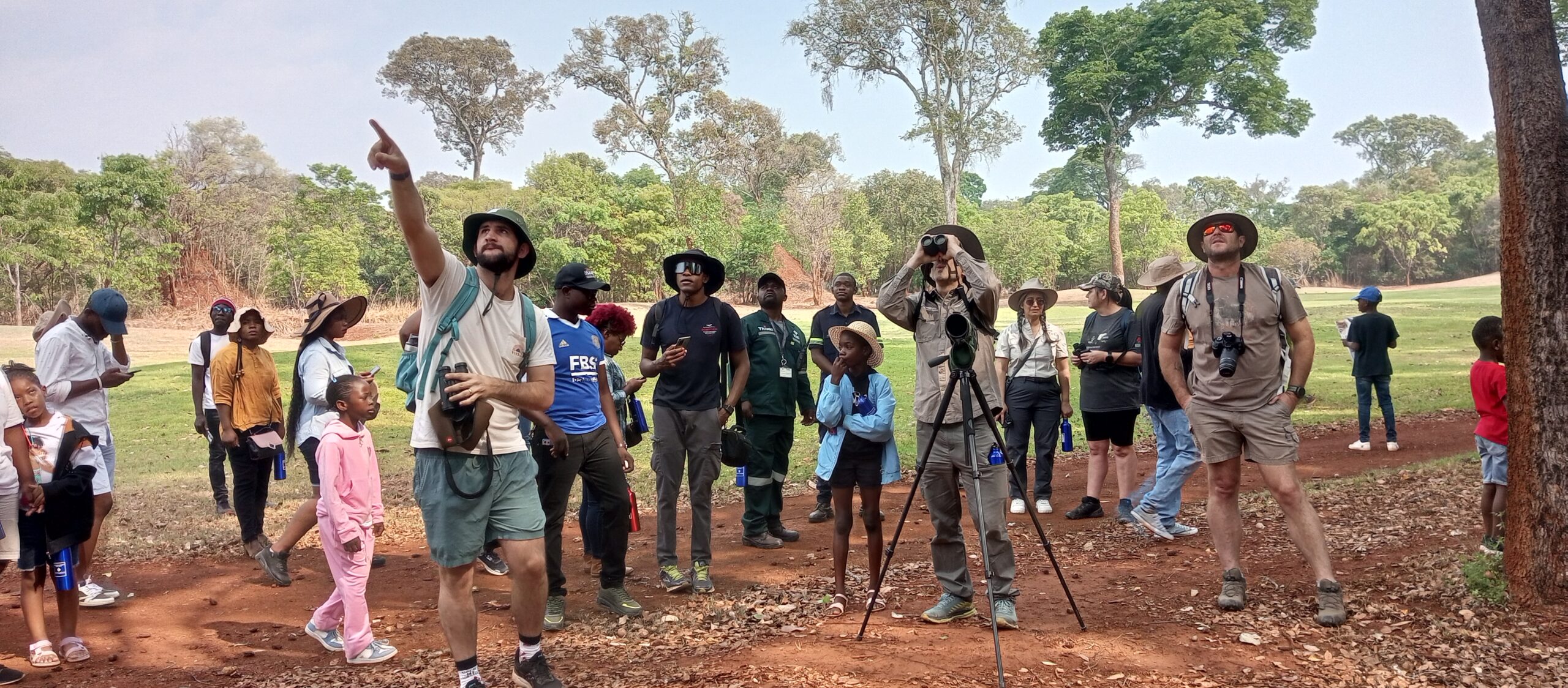By John Chola
It was an adventurous Saturday morning as over a hundred and fifty bird enthusiasts, including local residents and visitors from as far as Lusaka and abroad, gathered at the serene FQM Trident Limited golf estate bushes for an exciting bird-watching experience.
The event, which was part of the annual Bird Watching Day organized by the TWE Wellness Center, drew participants of all ages eager to explore the region’s natural beauty and rich birdlife.
By 6:00 AM, participants were already registering at Choopies Supermarket, eagerly boarding the bus to the serene venue, where the crisp morning air added to the excitement.
The group, armed with binoculars, cameras, and field guides, was welcomed by event organizers at the TWE Wellness Center.
The briefing, led by Kachiwala Sapalo, provided participants with an overview of the bird species they were likely to encounter, including colorful bee-eaters, sunbirds, and various species of hawks and storks.
Dr. Moses Chibesa, a renowned lecturer from Copperbelt University (CBU), was a major attraction, especially among the young attendees.
Swarmed by curious children and the elderly alike, Dr. Chibesa captivated everyone with his deep knowledge of bird species and their habitats.
“Bird watching is not just about spotting birds; it’s about understanding their environment and behaviors,” he shared as eager eyes watched him point out different birds swooping overhead and several captured for scientific research purposes.
The guided bird walk commenced at 7:00 AM, led by Dr Chibesa and his team of experienced ornithologists who took the participants through the designated trails of the estate.
The region, known for its lush flora and diverse ecosystems, provided ample opportunities for the birdwatchers to observe several bird species in their natural habitats.
The soft rustling of leaves, occasional sweet bird calls, and the distant murmurs of excited participants filled the air as bird enthusiasts identified species through their binoculars, while others captured breathtaking photographs.
Andrew Hester, another bird expert made enthusiasts discover the names of various birds to their amazement.
At each stop, Hester and the ornithologists provided valuable insights into the various bird species spotted, answering questions from participants and offering tips on how to identify birds based on their plumage, calls, and behavior.
By 11:30 AM, the group returned to the starting point for a wrap-up session, where participants shared their experiences and discussed the birds they had documented.
The day concluded with a question and answer session, finger snacks, and a farewell message from the organizers.
Attendees left with smiles, some carrying bird-watching materials as keepsakes, and all looking forward to the next nature-filled event.
The event held twice every last three years has continued to attract increased numbers of birdwatchers.
“It was a wonderful experience, especially for the kids,” remarked Luz Alfaro, one participant from within Kalumbila.
“Getting to learn about these incredible birds while being surrounded by nature was simply breathtaking. Zambia has some of the most colorful and beautiful birds which we only see or hear about. Today I have not only seen but also know their names,” Alfaro added
“There is a perseption that mining doesn’t care about biodiversity, but to the contrary as you have seen here we have preserved nature and some of the best brids to make this Big Day Bird Watching.” Sapalo said.
As the event ended, organizers reminded the participants of future nature activities, encouraging them to continue their journey of appreciating the incredible biodiversity of Kalumbila.
For nature lovers, this bird-watching event was not only an opportunity to witness the region’s wildlife but also a reminder of the importance of conservation and community engagement in preserving such pristine habitats.








